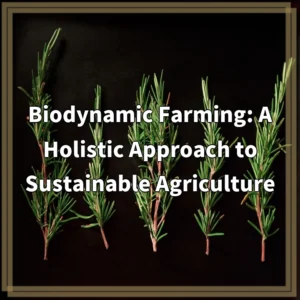What it is:
The power of a plant-based diet lies in the focus on consuming food derived from plant sources, such as fruits, vegetables, whole grains, legumes, nuts, and seeds. This dietary approach emphasizes the exclusion or limited intake of animal products, including meat, dairy, and eggs. By embracing a predominantly plant-based diet, individuals can enjoy a wide array of health benefits while also promoting environmental sustainability and animal welfare.
Real-world problems associated with it:
1. Nutritional Considerations:
While a well-planned plant-based diet can meet all the necessary nutritional requirements, there are certain nutrients that require careful attention. These include essential amino acids, vitamin B12, calcium, iron, and omega-3 fatty acids. However, these can be easily obtained through strategic food choices or supplementation, ensuring a well-balanced and nourishing plant-based diet.
2. Social Challenges:
Embracing a plant-based lifestyle may present social challenges, as it may differ from the mainstream dietary habits of family, friends, and societal norms. Attending social gatherings or dining out may require open communication and planning to ensure suitable plant-based options are available. Building a supportive community and educating others about the benefits of plant-based eating can help overcome these challenges.
3. Accessibility and Affordability:
In certain regions or communities, access to a diverse range of plant-based food options can be limited, making it more challenging to maintain a balanced diet. Additionally, there is a common misconception that plant-based eating is expensive. However, with proper planning, budgeting, and knowledge of affordable plant-based ingredients, it is possible to follow a nutritious and cost-effective plant-based lifestyle.
4. Lack of Information and Education:
Many people are unaware of the health benefits and environmental impacts associated with a plant-based diet. There is a need for increased awareness and education to dispel myths and provide accurate information about the positive impacts of plant-based eating. By sharing resources, conducting cooking demonstrations, and fostering dialogue, individuals can create a ripple effect of change within their communities.
5. Sustainability and Environmental Impact:
The global food system, particularly intensive animal agriculture, is a significant contributor to environmental issues like deforestation, greenhouse gas emissions, and water pollution. Choosing a plant-based diet reduces reliance on resource-intensive animal agriculture, making it a more sustainable choice. By advocating for local, organic, and sustainably sourced plant-based foods, individuals can contribute to positive environmental change.

Solutions to the Real-world Problems:
1. Nutritional Considerations:
– Ensure a well-balanced plant-based diet by incorporating a variety of plant-based protein sources such as legumes, tofu, tempeh, and quinoa.
– Consider fortified foods or supplements to meet nutrient needs, particularly vitamin B12 and omega-3 fatty acids.
– Incorporate calcium-rich plant-based foods like dark leafy greens, fortified plant milks, and tofu.
– Enhance iron absorption through the consumption of plant-based iron sources along with vitamin C-rich foods like citrus fruits or bell peppers.
2. Social Challenges:
– Communicate openly with friends and family about your dietary choices and provide suggestions for plant-based-friendly options when dining out or attending social events.
– Seek out and connect with local or online communities of like-minded individuals and participate in events or potluck gatherings centered around plant-based eating.
– Share resources and information to educate others about the benefits of a plant-based diet and dispel common misconceptions.
3. Accessibility and Affordability:
– Explore local farmer’s markets, community-supported agriculture (CSA) programs, or grow your own fruits and vegetables to access fresh and affordable plant-based ingredients.
– Look for budget-friendly plant-based protein sources like beans, lentils, and tofu, and prioritize seasonal and locally sourced produce.
– Plan meals in advance, practice batch cooking, and repurpose leftovers to minimize food waste and reduce overall costs.
4. Lack of Information and Education:
– Share information and resources about plant-based eating through social media platforms, blog posts, or hosting educational workshops or cooking demonstrations.
– Collaborate with local organizations, schools, or health professionals to promote plant-based nutrition and the associated benefits in your community.
– Encourage open dialogue and provide a supportive environment for individuals to ask questions or express concerns about transitioning to a plant-based diet.
5. Sustainability and Environmental Impact:
– Support local farmers and businesses that prioritize sustainable and regenerative agricultural practices.
– Reduce food waste by properly storing and utilizing leftovers, composting organic waste, and practicing mindful grocery shopping.
– Advocate for policies and initiatives that promote sustainable food systems, such as reducing subsidies for intensive animal agriculture and supporting plant-based options in public institutions.













